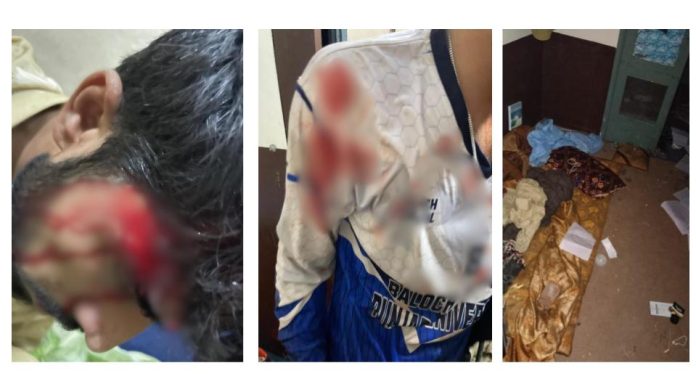In a disturbing incident at Punjab University in Pakistan, two Baloch students are in critical condition following a violent attack by baton-wielding members of the Islami Jamiat-e-Talaba (IJT). The attack, which left five Baloch students injured, highlights the systemic issues of racial profiling and discrimination faced by the Baloch community in educational institutions in Punjab province.
Reportedly, IJT members not only used sticks but also firearms during the assault. Several Baloch students sustained serious injuries, particularly to their heads and other vital areas. The violent episode occurred in Boys Hostel 8, where IJT members supported by university security forces, targeted Baloch students.
Baloch students, often fleeing the dismal educational landscape in Pak-occupied-Balochistan—where Pak military has left education system in ruins—have no choice but to seek education in Punjab province. Unfortunately, this move exposes them to harassment and violence. The educational system in POB suffers from severe infrastructural deficiencies and a lack of faculty, compelling many students to migrate in search of better opportunities.
The Baloch Council in Lahore has condemned the attack, stating that IJT students were responsible for the violence against their fellow students. However, instead of holding the aggressors accountable, Punjab police arrested more than 20 Baloch students, transferring them to the police station while ignoring the IJT members’ culpability. This raises critical questions: if the clashes were merely student rivalries, why were only Baloch students apprehended? And if maintaining peace and discipline is the goal, why are IJT members allowed to operate above the law?
The recent assault is a stark reminder of the long-standing policies of the Paki establishment, which consistently marginalizes the Baloch community. Recent events clearly demonstrate the targeted harassment that Baloch students endure.
The situation reveals the harsh reality that religious extremist groups like the IJT are, in fact, instruments of the university administration and authorities, used to justify the targeting of Baloch students and those from other marginalized communities, such as Pashtuns. This strategic exploitation perpetuates an environment where Baloch students are treated as second-class citizens, facing both systemic discrimination and outright violence.

